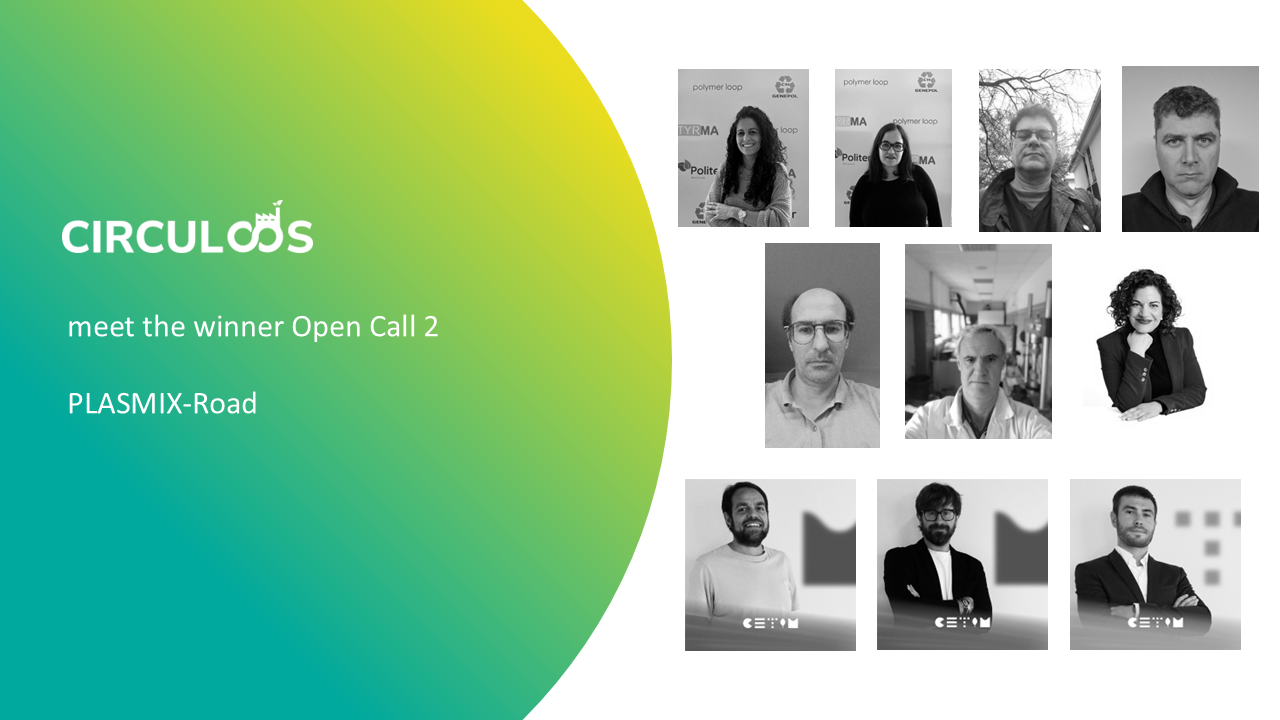LASMIX-Road (Plastic and Asphalt Synergies for MIXtures in low-carbon ROAD infrastructure) establishes a new circular value chain for sustainable asphalt production. The project focuses on the revalorisation of low-density polyethylene (LDPE) waste generated by GENEPOL’s recycling process, which currently has no further use and is mostly landfilled or incinerated. Its objective is to transform this waste into functional polymer additives that can partially replace conventional bitumen in asphalt mixtures, increasing recycled content and reducing CO₂ emissions.
The consortium, composed of GENEPOL, EXTRACO, CETIM, and DIHGIGAL, integrates expertise in polymer processing, asphalt manufacturing, material testing, and digital innovation. GENEPOL leads the conditioning and chemical modification of waste plastics; EXTRACO validates their technical performance in asphalt production; CETIM conducts laboratory characterisation and life cycle assessment; and DIHGIGAL ensures digital integration and dissemination.
Within CIRCULOOS, PLASMIX-Road demonstrates how digital tools such as RAMP, BPMN, GRETA, and the CIRCULOOS Data Platform can enhance material traceability, process transparency, and environmental validation.
The project will deliver high-performance asphalt mixtures with up to 15% recycled bitumen substitutes and 50% reclaimed asphalt, achieving over 50% CO₂ reduction and showcasing a replicable, digitally enabled circular supply chain for Europe’s road infrastructure sector.
1. Can you briefly introduce your team? What’s your story and what drives you?
The PLASMIX-Road consortium brings together four complementary partners from Spain: GENEPOL, EXTRACO, CETIM, and DIHGIGAL. Together, we combine industrial expertise in polymer recycling and asphalt manufacturing with advanced testing and digital innovation. Our shared goal is to turn complex plastic waste into valuable resources for low-carbon road infrastructure, demonstrating that circular materials can also meet the highest technical standards.
2. In simple words, what is your project about and how is it linked with CIRCULOOS?
PLASMIX-Road transforms low-density polyethylene (LDPE) waste from recycling processes into functional additives for asphalt production. The project shows how waste can become a raw material for new, high-performance roads. Within CIRCULOOS, we use its digital tools — such as RAMP, BPMN, and GRETA — to ensure material traceability, process optimisation, and environmental validation along the entire value chain.
3. How did you come up with this project idea/concept and what innovative benefits will it bring to the end users?
The PLASMIX-Road concept emerged from a shared ambition among the partners to find a high-value, circular use for plastic waste and to decarbonise road infrastructure. By combining the expertise of recyclers, construction companies, research organisations, and digital innovation hubs, the consortium developed a solution that integrates recycled polymers into asphalt mixtures as partial substitutes for bitumen and aggregates. This approach reduces CO₂ emissions, improves road performance, and opens new opportunities for collaboration between the recycling, construction, and digital sectors within a circular economy framework.
4. What type of synergies do you want to explore/are already exploring with other circular economy partners?
We aim to connect with other CIRCULOOS demonstrators, recyclers, and digital solution providers to standardise data models and scale up circular value chains across Europe. We are also open to collaborating with municipalities, infrastructure operators, and material suppliers interested in adopting circular asphalt solutions.
5. What are your plans for the future when it comes to the development of your ideas & projects?
After the pilot phase, the consortium plans to scale the solution to industrial level, testing it on larger road sections and validating it under real traffic conditions. We also intend to expand the circular chain, involving new partners from the construction, waste management, and public sectors to promote broader adoption of circular, digitally traceable asphalt materials across Europe


